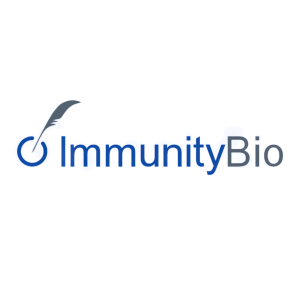National Multicenter Trial Opens to Study ImmunityBio’s Tri-Ad5 Cancer Vaccines Plus N-803 to Prevent Cancer in People with Lynch Syndrome
-
The Phase 2b cancer vaccine trial will study a multiple vaccination approach called ‘Tri-Ad5’ that uses three
ImmunityBio vaccines in combination with the company’s IL-15 superagonist N-803, to potentially reduce the risk of developing colorectal and other cancers in patients with hereditary Lynch syndrome. - An estimated 1 in every 300 people may be carriers of a mutation in a gene associated with Lynch syndrome1. People with this syndrome are more likely to be diagnosed with cancer at a younger age and are at increased risk of developing multiple types of cancers during their lifetime.
-
This is the first study to assess the ability of vaccines, delivered by an adenovirus vaccine platform, combined with an immune-enhancer, N-803, to target cancer-specific proteins and activate NK and T cells to prevent cancer, with the goal of enrolling 186 participants at 14 centers throughout the
U.S.
Each of the three vaccines in Tri-Ad5 targets different proteins associated with precancer and cancer cells. The vaccine combination is studying whether activation of dendritic cells and training the immune system to recognize those proteins will destroy the precancer cells before the cancer advances. N-803 is designed to enhance the effects of the vaccines by increasing proliferation and activation of natural killer (NK) and T cells, thereby increasing the potential for cancer prevention in study participants.
“We are excited to partner with the NCI on this important cancer vaccine study to potentially prevent or delay the onset of cancer for people who carry the gene associated with Lynch syndrome,” said
Lynch syndrome is one of the most common hereditary cancer syndromes. Not only can people with Lynch syndrome develop colorectal cancer some 20 years before the average age of diagnosis for this cancer, they are also at an increased risk of developing multiple types of other cancers, including endometrial, stomach, ovarian, pancreas, ureter and renal pelvis, biliary tract, brain, and small intestinal cancers. Colorectal cancer is the second-deadliest cancer type in the
To learn more about this study, please visit https://clinicaltrials.gov/ct2/show/NCT05419011.
For patients interested in enrolling in this study, please contact NCI’s toll-free number 1-800-4-Cancer (1-800-422-6237) (TTY: 1-800-332-8615) and/or the website: https://trials.cancer.gov and/or NCIMO_referrals@mail.nih.gov.
About ImmunityBio’s Tri-Ad5 Vaccines
ImmunityBio’s Tri-Ad5 vaccines target three tumor-associated antigens: brachyury, carcinoembryonic antigen (CEA), and mucin-1 (MUC1). Pre-clinical studies have demonstrated Tri-Ad5 vaccines elicit cytotoxic T cell-mediated tumor cell death and the establishment of memory T cells, and thus may provide protection against the growth and metastasis of cancer. Tri-Ad5 vaccines utilize a second-generation replication-defective human adenovirus serotype 5 (Ad5) vector with viral genes deleted to allow for production of the antigen and a vigorous immune response, without generating a host response to the vector and with the ability to overcome previous adenovirus immunity in cancer patients. Notably, in a phase 1 NCI trial, Tri-Ad5 generated antigen-specific T cells to MUC1, CEA, and/or brachyury in all 10 patients with no evidence of antigenic competition. The safety of multiple
About
N-803 (Anktiva™), ImmunityBio’s lead cytokine fusion protein, is a novel IL-15 superagonist complex and has received Breakthrough Therapy and Fast Track Designations from the
The company has established GMP manufacturing capacity at scale with cutting-edge cell therapy manufacturing expertise and ready-to-scale facilities, as well as extensive and seasoned R&D, clinical trial, and regulatory operations, and development teams. For more information, please visit: www.immunitybio.com
Forward Looking Statements
This press release contains forward-looking statements within the meaning of the Private Securities Litigation Reform Act of 1995, such as statements regarding the information and data to be provided by the clinical trial described herein, the potential effects of the Tri-Ad5 vaccine combination together with N-803, the potential use and efficacy of ImmunityBio’s product candidates for the prevention and/or treatment of cancer, clinical trial protocol design, enrollment, advancement and potential results, potential regulatory pathway for certain of ImmunityBio’s product candidates and target indications, data from the clinical trials for certain of ImmunityBio’s product candidates, potential implications to be drawn from clinical trials, potential commercialization of product candidates, and ImmunityBio’s product candidates as compared to existing treatment options, among others. Statements in this press release that are not statements of historical fact are considered forward-looking statements, which are usually identified by the use of words such as “anticipates,” “believes,” “continues,” “goal,” “could,” “estimates,” “scheduled,” “expects,” “intends,” “may,” “plans,” “potential,” “predicts,” “indicate,” “projects,” “seeks,” “should,” “will,” “strategy,” and variations of such words or similar expressions. Statements of past performance, efforts, or results of our preclinical and clinical trials, about which inferences or assumptions may be made, can also be forward-looking statements and are not indicative of future performance or results. Forward-looking statements are neither forecasts, promises nor guarantees, and are based on the current beliefs of ImmunityBio’s management as well as assumptions made by and information currently available to
1&2
View source version on businesswire.com: https://www.businesswire.com/news/home/20230425005133/en/
Investors
844-696-5235, Option 5
Sarah.Singleton@ImmunityBio.com
Media
Salutem
978-360-3151
Katie.Dodge@Salutem.com
Source:







